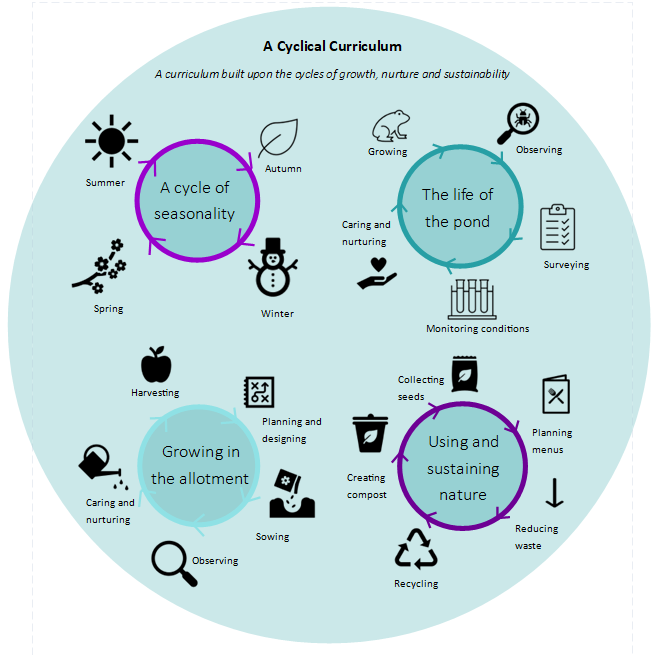Ecology Curriculum
As a school, one of the main lessons we learned from Covid was the importance of the natural environment for wellbeing as well as physical health. In order to embed use of our local natural environment within the curriculum, we have developed our own Ecology Curriculum for the children of Fulbourn primary School, which connects them to the living world around them.

Our Eco Curriculum is thoughtfully designed to cultivate in pupils a profound sense of connection to, and responsibility for, the natural world. It is not simply an outdoor learning programme repurposing nature to serve other academic ends. Rather, it complements and enriches the school’s science, geography, and PSHE curricula, anchoring our community’s learning in the life of our school grounds. Through this integration, pupils develop not only knowledge and skills, but also a lasting relationship with the environment that surrounds them.
At the heart of our ecology curriculum is a shared commitment to stewardship of the land, where every member of the school community - pupils, staff, and families - has a role to play. We believe that caring for our school grounds fosters a sense of collective responsibility, deepens connections to the natural world, and builds lifelong habits of environmental care. From planting and maintaining habitats to monitoring wildlife and seasonal changes, every action contributes to the flourishing of our local ecosystem. Through collaborative projects and everyday practices, pupils learn that small efforts, when multiplied across a community, can result in meaningful and lasting change. Stewardship is not just a lesson - it’s a lived experience that empowers children to become thoughtful, active custodians of their environment.
Our approach to stewardship is intentionally cyclical, reflecting the rhythms and patterns of the natural world we aim to protect. Just as ecosystems evolve through seasons - growth, decay, dormancy, and renewal - our ecological practices at school follow a continuous cycle of observation, action, reflection, and care. Tasks like composting, harvesting, planting, and maintaining habitats happen in recurring phases, allowing pupils to witness the interconnectedness of life and the importance of long-term commitment. This cyclical structure fosters resilience, patience, and a deeper appreciation for nature’s tempo, reinforcing the idea that nurturing the environment is not a one-time effort, but an ongoing journey we share together.
